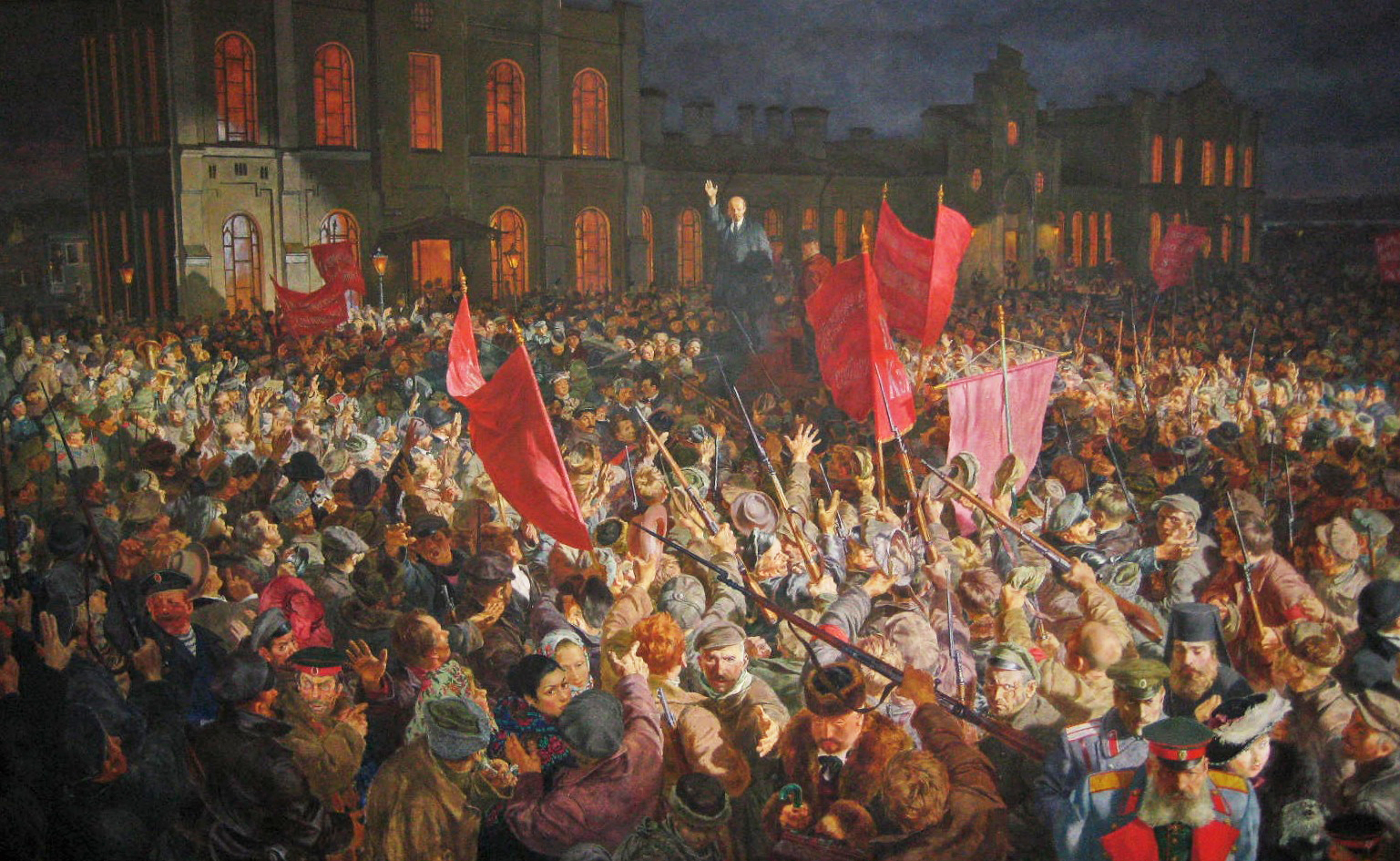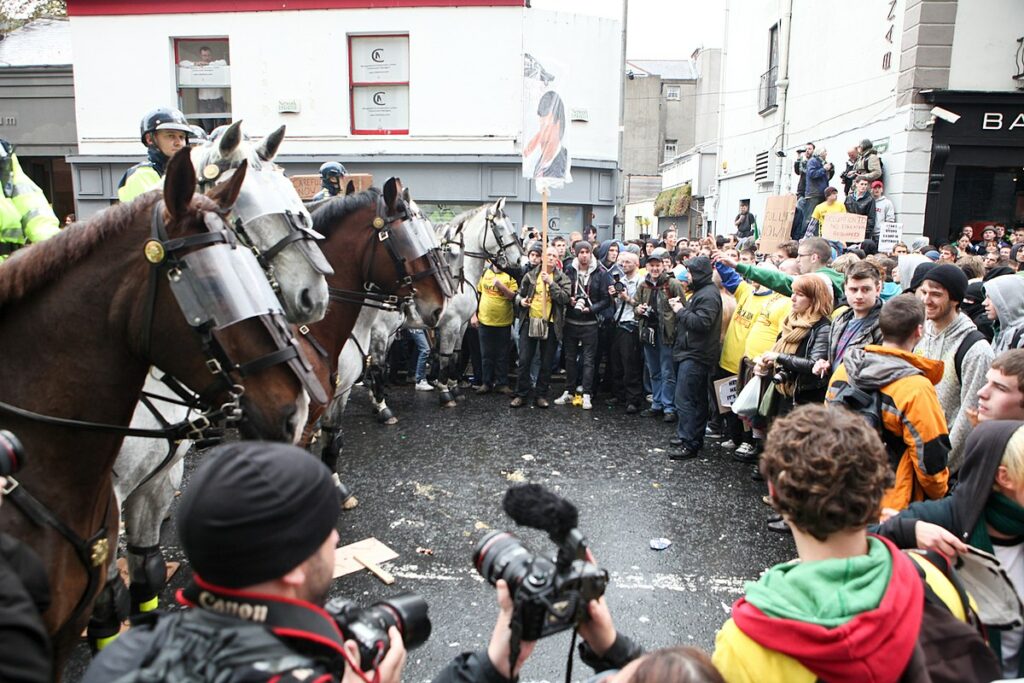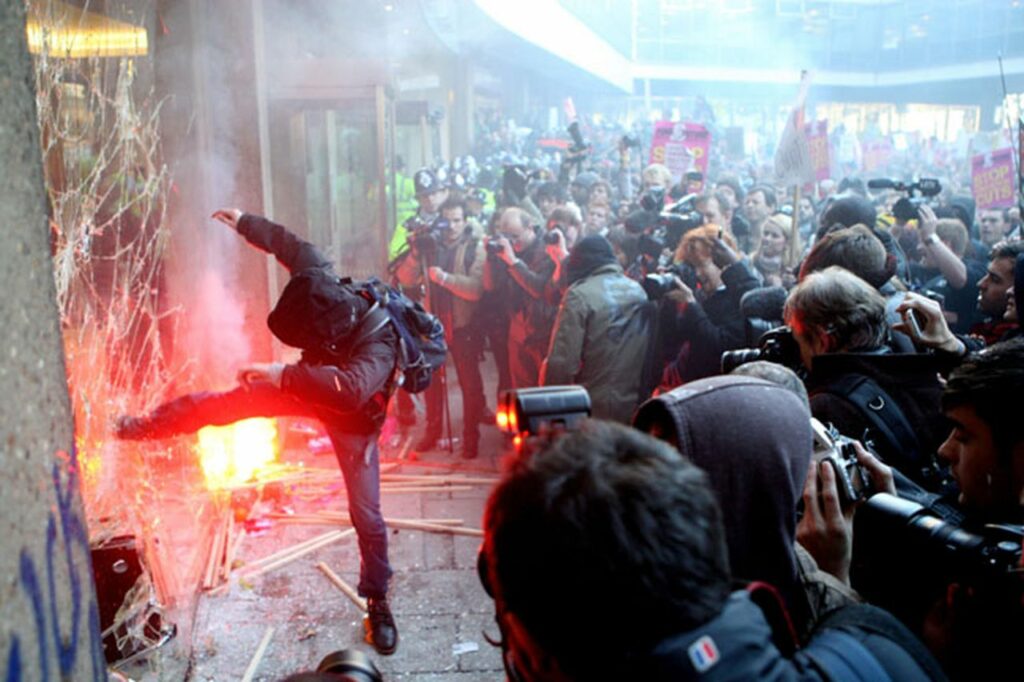László Molnárfi and Zaid Al-Barghouthi
One certainty about the third-level education sector is that it would be substantially harder to maintain without international students who are used as the cash cows of universities in Ireland and the United Kingdom alike. Expected to fork out anywhere between €9,000 – €45,000 in tuition fees, on top of housing and grocery costs that can easily reach €20,000 each year, these students are exploited to prop up the struggling academic sector. The internationalisation of the sector is pushed by senior management as well as state ministers often in place of the much-needed government investment in the sector. All of this is made possible by imperialist legacy.
These prestigious institutions were built on the back of slavery, colonialism and resource-theft, growing to occupy a dominant position in the process of knowledge production. Western universities, as a consequence, have built up a prestige that has come to occupy a dominant position in global knowledge production. The deference of educational prestige to the West, so-called ‘captive mind’ neo-colonalisation of higher education, is key to understanding why the system works, with international students being enthusiastic – if disgruntled – participants in the process.
Without a doubt, our universities are dependent on this cohort of students. Students from non-EU countries make up 13.7% of the total student population, and contribute €2.5 billion to the Irish economy, split between tuition fees and housing, subsistence and travel. In fact, non-EU international students are required to demonstrate possession of sizable assets – €10,000 in addition to course fees per year – as part of the burdensome list of conditions to obtain the student visa needed.
Universities spend considerable amounts on international student recruitment, Trinity College Dublin alone having spent €1.4 million in 2019. The ability for these students to then take up their place is dependent on how well-off they are, regardless of academic merit. This is the behaviour of cash-strapped universities who rely on this crucial source of income to pay their staff, energy expenses and building upkeep. Additionally, to ensure some margin in their budget to allow for research projects and other initiatives that bring a university up the rankings which, often misguidedly, dictate global competition in education.
Despite contributing a significant chunk to universities’ finances, international students are a vulnerable and exploited group. Each year, like clockwork, the media cycle highlights the plight of foreign students in Ireland. Lack of accommodation, finding no money for groceries, commuting for hours, and being scammed as part of a continuous series of student housing policy disasters, it seems puzzling that these students are applying to study abroad in the first place.
Quick Facts
|
|---|
At the same time as being expected to foot the fall for academia’s funding gap, the international students cohort is met with Kafkaesque legal limitations during and after their time in Ireland. They are treated as disposable, propping up the economy, yet meeting hurdles when taking up employment. The message is clear: get your degree, and leave. During their studies, they are limited to working 20 hours per week, which puts them at further risk of financial insecurity. The cohort enduring the highest costs is the only one subject to employment-related restrictions.
After their studies, despite being praised as a skilled workforce well-able to contribute to the economy, finding a job is tricky. Graduates need to obtain a specific visa, and then be sponsored by an employer, who has to demonstrate that they attempted to fill the vacancy with an Irish or European Union citizen first.Finding an employer willing to sponsor a non-EU graduate is exactly what it sounds like; an uphill battle.
The treatment of international students as second-class citizens has not gone unnoticed. The financial precarity that befalls these students is well-known. Students participated in a mass walkout organised by the Union of Students in Ireland (USI) in October 2024, as well as other acts of resistance to the state-sanctioned commercialization of academia. The internationalisation process – a key component of commercialization – is the mechanism by which universities are increasingly dependent on foreign students paying exorbitant fees. The root of the issue is deeper, running through history, back to our colonial legacy.
The willingness to participate in this system from the side of students cannot be separated from our imperialist history. The intellectual domination of Western academia, its prestige, networks and influence is a form of ‘captive mind’ neo-colonialism, only made possible by centuries of resource theft from the global south. The essence of ‘captive mind’ theory is the deference to Western academia, the ordering of knowledge in relation to the West, its being held up as the pinnacle of academic development, while sidelining non-Western universities, and their own local knowledge contexts. It is a form of continued colonisation, which forces universities outside of the Global North to adjust to a colonial centre, mediated through the neoliberal tool of rankings tools and recognition of qualifications.
These ranking tools bring an element of free market competition into academia, and force universities to subscribe to ‘international knowledge production’, buy expensive subscriptions to Western publishing journals, re-adjust their values for ‘employability’ and the production of ‘human capital’, as well as divorce research from the local context. It also ensures conformity of curriculums around the world to ‘Western Standard’, specifically in more technical areas of study.
The elite universities include those in Ireland, due to British occupation – for example, Trinity College Dublin, today a university where close to 17.5% of students are of a non-EU background, was in the past a beneficiary of empire, “amassing endowments, parliamentary grants and more than 180,000 acres of land confiscated from Irish people”. During colonial times, indigenous knowledge and education was suppressed by the metropole’s education policy. After colonial times, these biases resurface in other ways. By the position of Western academia as ‘superior’, a standing reflected in ranking tools which are inextricably linked to colonial legacies, international students are encouraged to attend university abroad, to study and research. It grants them access to networks which aid employment prospects amongst other benefits. This centralization of education and research ensures that in the former colonies, the development of indigenous education is delayed – as policymakers seek to adjust to and clone the Western model – and thus that the emergence of national consciousness is stunted.
This results in continued dependency of former colonies on Western imperial powers. In turn, the intellectual, and eventually economic, dominance of the West is reinforced especially as employers begin to attribute more weighing to a ‘Western’ degree simply as a result of the rankings and prestige of institutions. Of course, the above breakdown of the cost and the reduced options of scholarships available for international students limit entry to those who can afford it, severely limiting the demographic that can enter the cycle of obtaining a ‘Western Education’.
It is in this context that the internalisation of Irish academia, as part of the ever-intensifying process of commercialising education, finds its fertile ground. In the past few years, a series of campaigns by progressive staff and students to decolonize academia found its way into the mainstream. The renaming of buildings, toppling of statues and diversity hiring initiatives as well as divestment from industries involved in the military-industrial complex have forced a reckoning with universities’ colonial past. This turn to reevaluate our colonial past is the first step to ensuring that there is no place for a colonial future.
Sources:
https://www.universityworldnews.com/post.php?story=20230714203020126
https://assets.gov.ie/24503/dd9ff02cb4db4899bc84a387d48ffa11.pdf
https://old.trinitynews.ie/2019/11/trinity-increases-spending-on-international-student-recruitment-to-e1-4-million/
https://journals.sagepub.com/doi/abs/10.1177/016146817707900201?journalCode=tcza
https://www.thejournal.ie/readme/university-and-imperialism-5269344-Nov2020/




